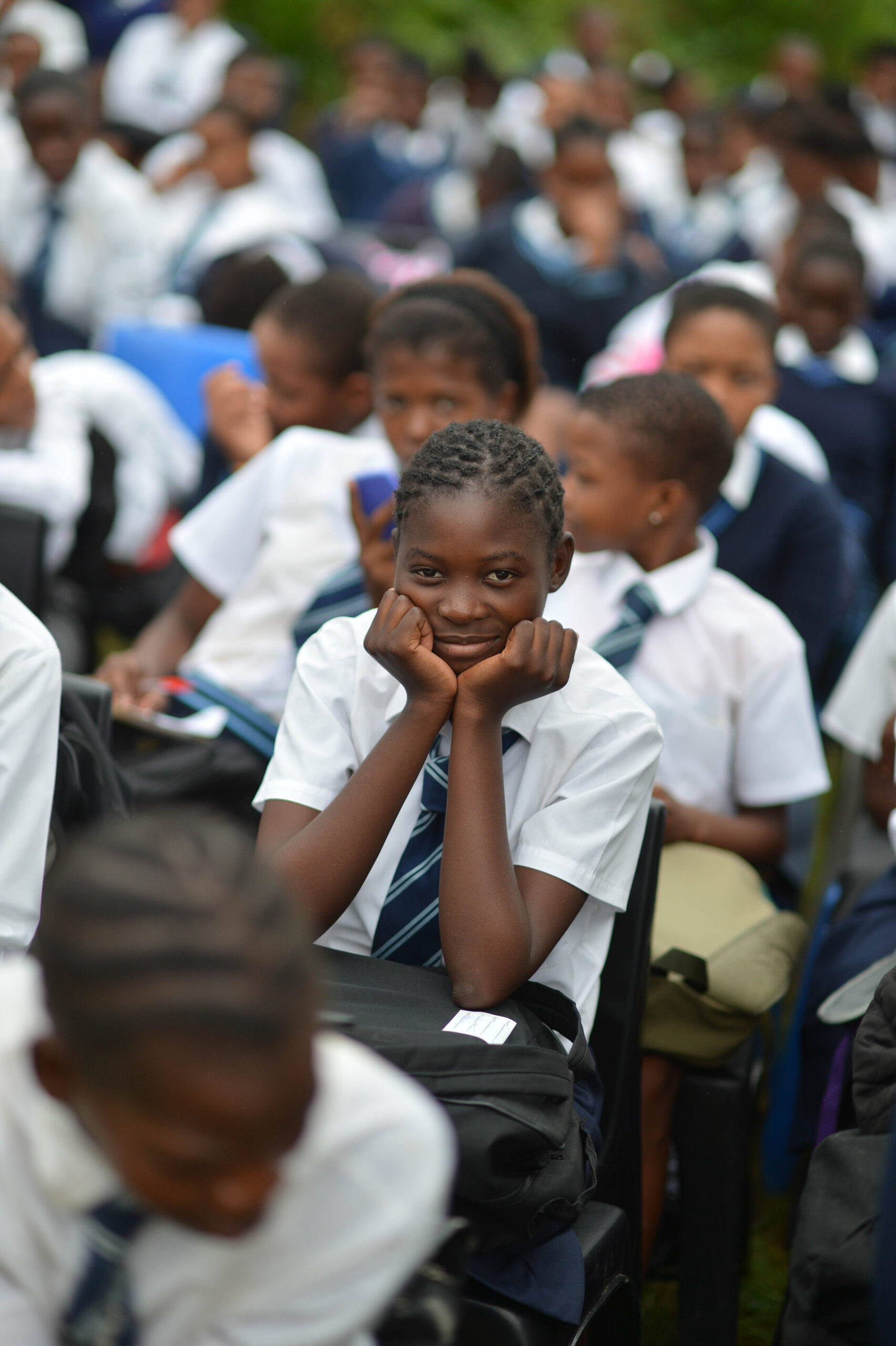This feature is the second of four parts written to inform readers, particularly political thinkers, on election issues using a SWOT Analysis. In this instalment, the focus is on our strengths and weaknesses.
Social Context
The main social strengths of Botswana are a well-supported social programme that includes free schooling and health services, as well as low-cost housing. Yet weaknesses are that rates of abuse are very high that are symptomatic of a deeper social malaise. Solutions include public awareness campaigns, mental health services, and crisis hotlines.
Family values and support systems contribute to social cohesion, but single-parent households impact support networks. Remedies involve targeted support programmes and affordable childcare services.
English proficiency in Botswana facilitates global engagement, but preserving linguistic diversity is crucial. Efforts should balance global integration with language preservation through documentation, bilingual education, and cultural exchange programmes.
Free education and healthcare enhance the quality of life but face challenges like high youth unemployment. Solutions include targeted economic policies, strengthened social welfare, and skills development. These measures aim to empower marginalised groups and address structural issues hindering the benefits of free services.
Botswana’s strong police force maintains law and order, which is crucial for development. However, ensuring inclusivity and ethical practices requires ongoing efforts. Solutions involve diversity training and ethics education for law enforcement personnel.
Religious and cultural diversity in Botswana fosters community and shared values. However, addressing issues like greenwashing is vital to ensure that ethical values within diverse communities are genuine and contribute positively. Encouraging transparency within organisations is key.
In summary, Botswana’s social strengths and weaknesses necessitate targeted interventions. From addressing social issues to promoting linguistic diversity, fostering inclusivity, and ensuring genuine ethical practices within diverse communities, focused efforts are essential.

Technological Context
The increasing investment in technology infrastructure supports digital connectivity, innovation, and global positioning. Despite this, disparities in technology access may hinder equal opportunities. To bridge this gap, comprehensive digital literacy programmes, community technology centres, and public-private partnerships are essential, ensuring that technological benefits reach all citizens and minimising access disparities.
The growing adoption of mobile technology enhances communication and connectivity, fostering improved information dissemination. However, limited technological diversification may lead to industry dependency. Remedies include increased research and development spending, promoting knowledge tools like Wikipedia, and incentivising technology startups for diversified entrepreneurship.
Technological advancements have the potential to enhance productivity, streamline processes, and contribute to economic growth. Despite this, low adoption of modern farming practices limits agricultural productivity. Addressing this requires strengthening agricultural extension services, educating farmers about modern practices, and providing subsidies for technology adoption.
In summary, strategic moves in technology infrastructure and mobile adoption offer benefits but disparities and limited diversification pose challenges. Remedies involve comprehensive programmes, knowledge tools promotion, incentivising entrepreneurship, and addressing weaknesses in agriculture through education and subsidies.
Economic Context
A stable currency and sound fiscal management is a considerable strength that contributes to economic stability, providing a reliable foundation for financial transactions and investments. Diamonds, accounting for 85% of exports and 70% of government revenue, have been the cornerstone of development. However, heavy reliance on diamonds poses risks. Diversifying revenue sources by investing in non-resource sectors like services, technology, tourism, and manufacturing is crucial to reduce vulnerability to global market dynamics.
The large informal sector provides employment opportunities and economic resilience, allowing flexibility in the labour market. While a strength, informal labour practices lead to weaknesses like job insecurity and challenges in ensuring fair labour practices. Remedies involve strengthening the informal sector, including training programmes for workers and employers about their rights and responsibilities.
The dominance of the public sector ensures government control in critical areas like infrastructure, healthcare, and education. Autonomous state enterprises can contribute to economic development and diversification, implementing long-term projects. However, excessive regulation could stifle private sector growth. Striking a balance is crucial for sustained economic growth. Over-reliance on state enterprises may result in inefficiencies, requiring transparency, accountability, and efficiency improvements.
The Botswana Gazette recommends regulatory reviews, regular efficiency assessments, and increased private sector participation to promote competition. In summary, Botswana’s economic stability relies on diversification efforts, addressing weaknesses in the informal sector and balancing public and private sector roles.
Strategic investments in non-resource sectors, regulatory improvements, and promoting private sector involvement are vital for sustained economic growth.
Environmental Context
Being a signatory to international environmental conventions showcases Botswana’s commitment to global sustainability, enhancing its international reputation. However, challenges in compliance and enforcement undermine this commitment.
Strengthening enforcement mechanisms and addressing institutional gaps are vital. Actions include enhancing the capacity of environmental regulatory bodies for effective enforcement and conducting public awareness campaigns to educate the population about environmental protection and compliance.
The government’s commitment to conservation and protected areas contributes to biodiversity preservation, demonstrating environmental stewardship. Despite good credentials, loss of biodiversity due to habitat destruction continues.
Balancing development with conservation efforts and implementing sustainable land use practices are crucial. Remedies include integrated land use planning, strengthening management practices in protected areas, and incorporating community involvement and sustainable tourism.
Low population density and limited urbanisation help mitigate environmental pressures, fostering a healthier coexistence with nature. Despite this, human-wildlife conflict due to habitat encroachment poses challenges. Effective strategies such as habitat management and community education programmes are crucial to balancing conservation with human needs.
Botswana’s support for the UNGA resolution on the right to live in a healthy environment is commendable. Reasonable environmental regulations indicate a commitment to sustainable practices. However, the practice of greenwashing obscures genuine sustainability efforts.
Remedies include enhancing regulatory oversight, ensuring that businesses adhere to genuine sustainability practices, and promoting judicial independence to litigate environmental crime cases, especially those involving the public sector.
Educating the public about greenwashing practices is essential for empowering citizens to hold the government and businesses accountable.
In summary, Botswana’s environmental strengths lie in international commitments and conservation efforts. Addressing weaknesses involves strengthening enforcement, balancing development with conservation, and combating greenwashing through regulatory measures and public education.
Political Context
Botswana’s political strength is rooted in its stable environment, fuelling economic growth. However, limited political party diversity poses a risk, demanding initiatives for a more varied political landscape. Measures such as supporting underrepresented groups and electoral reforms for proportional representation can enhance inclusivity.
The nation boasts a well-established constitution safeguarding fundamental rights, yet challenges persist in their full implementation. Solutions involve continued participatory constitutional reforms, addressing gaps in legal frameworks, and promoting public awareness of rights for enhanced protection.
Press freedom and freedom of speech are generally respected, allowing diverse voices. However, challenges in practice may affect information quality, prompting the need for media literacy programmes and legal protections for unbiased reporting.
Adherence to democratic principles supports political stability, but changes in leadership could impact values and press freedom. To mitigate risks, measures include strengthening institutional structures during transitions and emphasising the continuity of democratic values.
A relatively corruption-free environment contributes to effective governance. However, challenges in enforcing legal frameworks may undermine civil liberties, necessitating judicial training and public awareness campaigns for empowerment. Community and social support networks enhance well-being, but gender inequality hampers social dynamics. Comprehensive gender empowerment programmes and the enforcement of equality laws are crucial for addressing these issues.
Cultural diversity and traditions enrich society but may hinder progress. Cultural sensitivity training for policymakers and community dialogues can bridge understanding between traditional beliefs and contemporary challenges. Active engagement in international organisations positions Botswana globally, but suboptimal implementation of agreements hinders domestic appeal.
Remedies include integrating multilateralism into domestic policies, supporting UN Security Council reform, and advocating for more devolution of international diplomatic infrastructure.
While Botswana has considerable and undoubted strengths, significant weaknesses do exist that must be squarely addressed by political parties vying for office at the next election.

